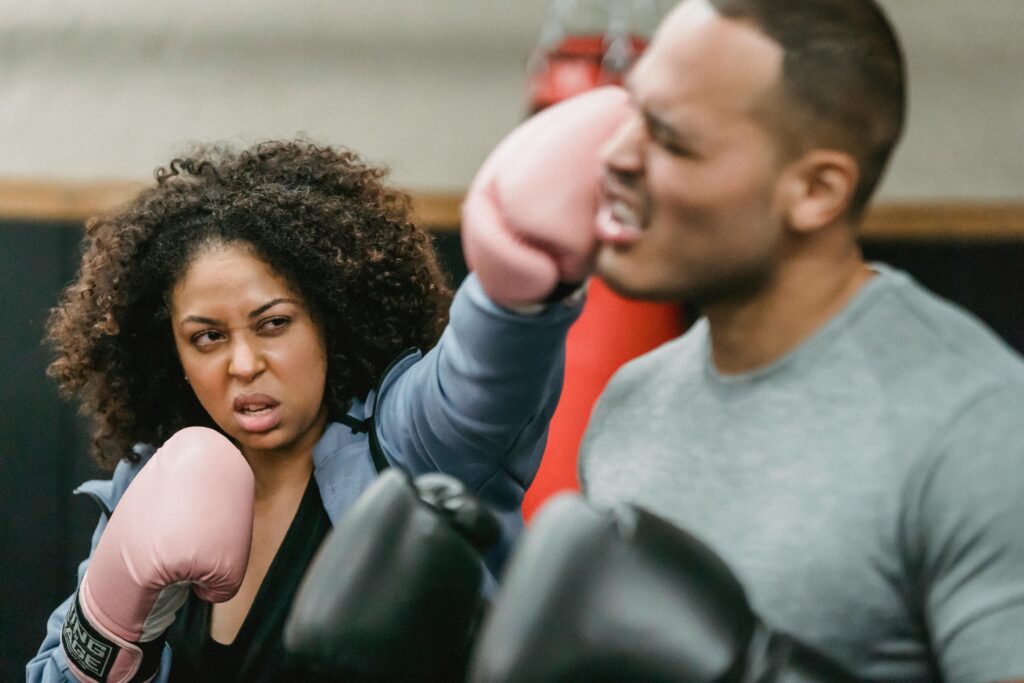
Conflict in marriage is inevitable, but the way we handle it defines the strength of our relationship. A fight isn’t the end of the world—it’s an opportunity to grow, learn, and reconnect. Here’s our in-depth guide on how to apologize and heal after a fight in marriage, because love deserves a second, third, and hundredth chance.
Step 1: Pause and Reflect Before Reacting
Fights can stir emotions that cloud our judgment. Before jumping into apologies or explanations, take a moment to breathe. This pause isn’t about ignoring the issue but about ensuring we don’t worsen the situation. Ask yourself:
- What caused the disagreement?
- How did my words or actions contribute to the conflict?
- What is my partner feeling right now?
Reflection builds empathy, and empathy is the bridge back to harmony.
Step 2: The Art of a Genuine Apology
Apologies aren’t just about saying, “I’m sorry.” They’re about rebuilding trust and showing accountability. A good apology includes:
Acknowledgment of the hurt
Be specific about what you’re sorry for. Instead of a vague “sorry,” try, “I’m sorry for interrupting you during our discussion and not listening to your perspective.”
Validation of feelings
Even if you don’t fully agree, let your partner know their feelings are valid. For example, “I understand why you felt upset when I raised my voice.”
Taking responsibility
Avoid using “but” or “if.” Phrases like “I’m sorry if you felt hurt” shift the blame. Own your actions.
A promise to improve
An apology without change is empty. Share how you plan to avoid repeating the mistake.
Step 3: Let Your Partner Express Their Feelings
Healing isn’t one-sided. Once you’ve apologized, give your partner the space to share their emotions. Here’s how to make them feel heard:
- Listen without interrupting. Resist the urge to defend yourself or justify your actions.
- Acknowledge their perspective. Repeat their points back to them to show you understand.
- Stay calm. Even if their words sting, remind yourself this is part of the healing process.
Step 4: Repair the Emotional Connection
An argument can leave emotional wounds. Rekindling that connection is crucial to moving forward. Here’s how to repair the bond:
Spend quality time together
Plan an activity you both enjoy—watching your favorite movie, going for a walk, or cooking a meal together.
Use physical affection
Sometimes, a hug or holding hands speaks louder than words. Touch can dissolve tension and remind you both of your love.
Reaffirm your commitment
Say things like, “We’re a team, and I’m committed to working through this together.”
Step 5: Learn from the Conflict
Every fight has a lesson. Once the dust has settled, discuss what you can do differently in the future. Consider:
- What communication patterns led to the argument?
- Are there unresolved issues that need deeper attention?
- How can we support each other better moving forward?
This step isn’t about reopening old wounds but about preventing future ones.
Step 6: Prioritize Forgiveness
Forgiveness is a gift we give ourselves and our partner. Holding onto resentment only deepens the divide. To truly forgive:
- Let go of the need to “win.” Relationships aren’t about keeping score.
- Focus on the positive aspects of your partner. Remember why you fell in love.
- Practice patience. Healing takes time, and forgiveness is a process, not an event.
Step 7: Establish Healthy Communication Habits
Prevention is always better than cure. Building healthier communication patterns can minimize future conflicts:
Practice active listening
Show genuine interest in what your partner is saying. Nod, maintain eye contact, and summarize their points.
Use “I” statements
Instead of saying, “You never help around the house,” try, “I feel overwhelmed when the chores pile up.”
Schedule regular check-ins
Set aside time to discuss your relationship. Addressing small issues early prevents them from snowballing.
Step 8: Seek Professional Support if Needed
Sometimes, conflicts stem from deeper issues that require expert guidance. Seeking counseling isn’t a sign of failure; it’s a testament to your commitment to the relationship. A therapist can provide tools and strategies tailored to your unique dynamic.
Final Thoughts: Love Is Always Worth the Effort
Marriage isn’t about never fighting; it’s about fighting for each other. Every disagreement is a chance to grow closer and strengthen your bond. By apologizing sincerely, communicating openly, and prioritizing healing, you can navigate conflicts with grace and emerge stronger than ever.
Remember, no marriage is perfect, but every marriage is perfectible—with love, patience, and a little bit of humor along the way.
Marriage Advice for Women: Expert Tips for Building a Lasting Relationship
FAQs: How to Apologize and Heal After a Fight in Marriage
Question: Why is apologizing important after a fight in marriage?
Apologizing demonstrates accountability, rebuilds trust, and opens the door to effective communication and healing within the relationship.
Question: What makes an apology in marriage effective?
An effective apology includes acknowledging the harm caused, validating your partner’s feelings, taking responsibility, and offering a sincere promise to improve.
Question: How can we heal emotional wounds after a fight?
Healing involves open communication, quality time together, physical affection, and reaffirming your commitment to the relationship.
Question: How do we prevent recurring conflicts in marriage?
Preventing conflicts requires practicing active listening, using “I” statements to express feelings, addressing small issues early, and scheduling regular check-ins to maintain open communication.
Question: When should we consider seeking professional help?
Professional help is recommended when fights stem from deeper issues, communication becomes challenging, or when conflicts negatively affect the emotional well-being of one or both partners.
Building a Stronger Marriage: Your Complete Guide to Resolving Conflicts
Signs of Poor Communication in Marriage: A Heartfelt Guide to Recognition and Healing



